If you’re looking to improve your gut health and digestion, incorporating prebiotic foods into your daily diet is a simple and effective way to do so. Prebiotic foods contain fiber and other beneficial nutrients that work to nourish the gut microbiome, leading to a healthier gut and better overall well-being.
When you consume prebiotic foods regularly, the fibers and other substances they contain move through your digestive system and reach the large intestine. There, they are broken down by the gut microbiome, which ferments them and produces short-chain fatty acids (SCFAs). SCFAs are essential for gut health, as they can help reduce inflammation, improve nutrient absorption, and enhance immune function.
Furthermore, prebiotic foods are known to stimulate the growth of beneficial bacteria in the gut, which can help maintain a diverse and balanced gut microbiome. With a healthy gut microbiome, you’ll experience improved digestion, reduced inflammation, and better overall health.
If you’re looking to boost your gut health and digestion, incorporating prebiotic foods into your diet is a simple and effective way to do so.
Key Takeaways:
- Regularly consuming prebiotic foods can lead to a healthier gut and improved digestion.
- Prebiotic foods contain beneficial nutrients that nourish the gut microbiome, leading to the production of short-chain fatty acids (SCFAs).
- SCFAs reduce inflammation, promote nutrient absorption, and enhance immune function.
- Prebiotic foods also stimulate the growth of beneficial bacteria in the gut, which can help maintain a diverse and balanced gut microbiome.
- With a healthy gut microbiome, you’ll experience improved digestion, reduced inflammation, and better overall health.
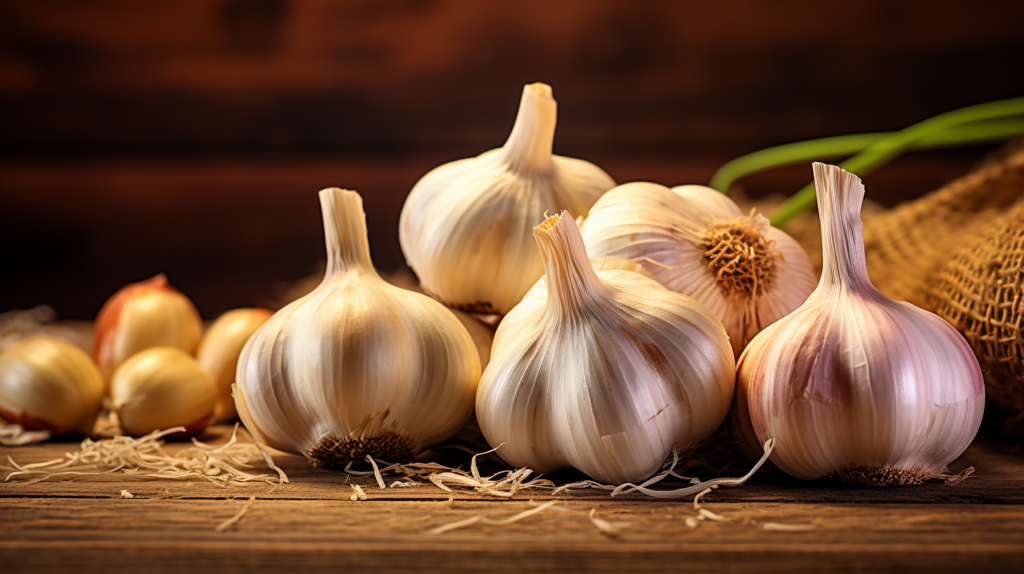
Understanding Gut Health and the Gut Microbiome
When it comes to overall health, your gut plays a crucial role. A healthy gut means a healthy you, as the gut is responsible for digesting food and absorbing nutrients, and even plays a role in regulating your mood and immune system.
But what exactly is the gut microbiome, and how does it impact your digestive system health? The gut microbiome refers to the trillions of bacteria and other microorganisms that reside in your gut. These microorganisms work together to support proper digestion and nutrient absorption, and also play a role in protecting the gut from harmful bacteria.
The Gut-Brain Connection
Research has shown that the gut microbiome can also have an impact on your mood and mental health. The gut and brain are connected through the gut-brain axis, a complex communication pathway between the two organs. This connection means that the health of your gut microbiome can have an influence on your mental health.
Factors Affecting Gut Health
Several factors can affect the health of your gut microbiome, including diet, stress, and medications. Eating a diet rich in prebiotic and probiotic foods can help support a healthy gut microbiome.
The Role of Probiotics and Prebiotics
While the terms “probiotics” and “prebiotics” are often used interchangeably, they refer to different things. Probiotics are live bacteria that are beneficial for gut health, while prebiotics are indigestible fibers that serve as food for the beneficial bacteria already living in your gut.
By consuming prebiotic foods, you can promote the growth of beneficial bacteria in your gut, which can help support proper digestion and nutrient absorption.
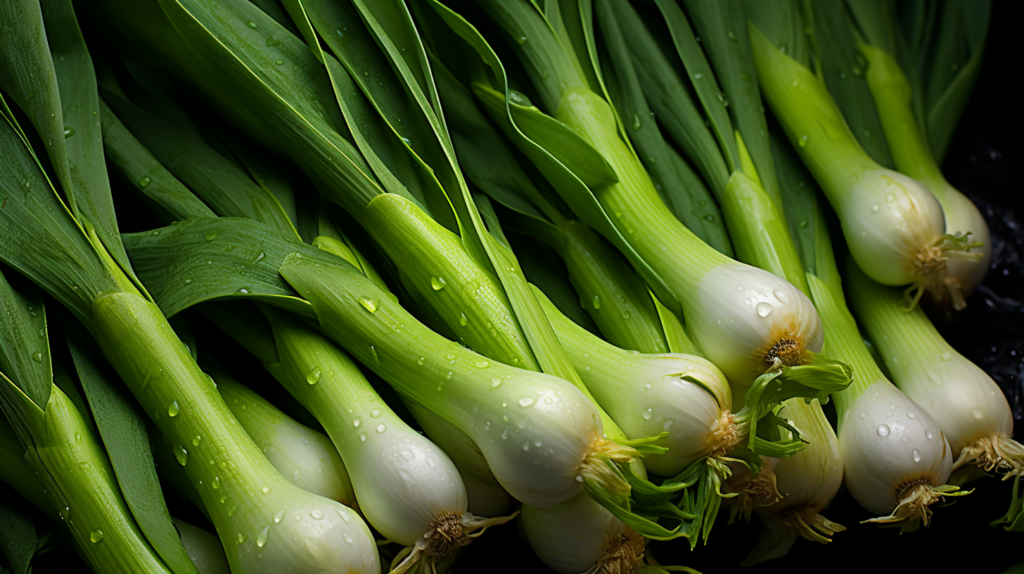
What Are Prebiotic Foods?
Prebiotic foods are a type of dietary fiber that nourish the friendly bacteria in your gut. They are non-digestible, meaning they pass through your digestive system without breaking down. Instead, they provide the ideal environment and food source for beneficial gut bacteria to thrive.
Prebiotic foods differ from probiotics, which are live bacteria that are introduced into your digestive system to improve gut health. Prebiotics, on the other hand, are naturally present in foods or can be added as supplements to your diet.
| Some examples of prebiotic-rich foods include: | |
|---|---|
| Asparagus | |
| Garlic | |
| Onions | |
| Bananas | |
| Apples | |
| Pears | |
| Chicory root | |
| Jerusalem artichokes | |
| Legumes (beans, lentils, peas) | |
| Whole grains (oats, barley, wheat) |
Incorporating prebiotic-rich foods into your diet can help maintain a healthy gut microbiome, leading to various health benefits.
The Importance of Prebiotic Foods for Gut Health
Consuming prebiotic-rich foods can have numerous benefits for your gut health. Here are some ways including prebiotic foods in your diet can benefit your gut:
| Gut Health Benefits | Gut Health Diet |
|---|---|
| Prebiotics promote the growth of beneficial bacteria in your gut, which can improve overall gut health. | Include foods like garlic, onions, asparagus, and bananas in your diet to increase your prebiotic intake. |
| Prebiotics can enhance nutrient absorption from the food you eat, leading to better overall health. | Incorporate whole grains, legumes, and nuts in your diet to increase your prebiotic intake. |
| Prebiotics can help to reduce inflammation in the gut, which can improve digestive symptoms and overall gut health. | Include a variety of fruits and vegetables in your diet to increase your prebiotic intake. |
Incorporating prebiotic foods into your diet can be a simple and effective way to support your gut health.
The Importance of Prebiotic Foods for Gut Health
Studies have shown that including prebiotic-rich foods in your diet can lead to numerous benefits for your gut health. For example, prebiotics can help to promote the growth of beneficial bacteria in your gut, which can improve overall gut health. Additionally, prebiotics can enhance nutrient absorption from the food you eat, leading to better overall health.
Furthermore, prebiotics can help to reduce inflammation in the gut, which can improve digestive symptoms and overall gut health. A gut-friendly diet, rich in prebiotic foods, can also benefit other aspects of your health, such as your immune system and mental health.
To ensure that you are reaping the benefits of prebiotic foods, it’s important to include a variety of prebiotic-rich foods in your diet. Some examples of prebiotic-rich foods include garlic, onions, asparagus, bananas, whole grains, legumes, and nuts.
Incorporating prebiotic-rich foods into your diet can be as simple as adding sliced bananas to your morning oatmeal or incorporating roasted garlic into your dinner recipes. By making prebiotic foods a regular part of your diet, you can support your gut health and overall well-being.
How Prebiotic Foods Support Digestion
If you experience digestive issues such as bloating, gas, or constipation, regularly consuming prebiotic foods can help improve your digestion. Prebiotics promote the growth of beneficial bacteria in your gut, which are essential for a healthy digestive system.
These foods act as fuel for the good bacteria in your gut, allowing them to grow and proliferate. This, in turn, can lead to improved digestion and better overall gut health. By consuming prebiotic-rich foods, you are providing your gut with the nutrients it needs to maintain a healthy balance of good and bad bacteria.
How Prebiotic Foods Support Digestion
| Prebiotic Food | Benefits for Digestion |
|---|---|
| Asparagus | Helps reduce constipation by improving bowel movements |
| Bananas | Rich in fiber, aids in digestion and relieves constipation |
| Garlic | Helps prevent gut inflammation and improves digestion |
| Onions | Contain prebiotic fiber that improves gut health and digestion |
As you can see, prebiotic-rich foods offer a variety of benefits for your digestion. They can help reduce constipation, improve bowel movements, prevent gut inflammation, and more.
Additionally, prebiotic foods are often gut-friendly, meaning they are easy to digest and do not cause discomfort or irritation in the digestive tract. This makes them an ideal addition to any gut-healthy diet.
By incorporating prebiotic foods into your meals, you can support a healthy gut and improve your digestion. Whether you choose to add them to a salad, stir-fry, or smoothie, there are many ways to make these foods a regular part of your diet.
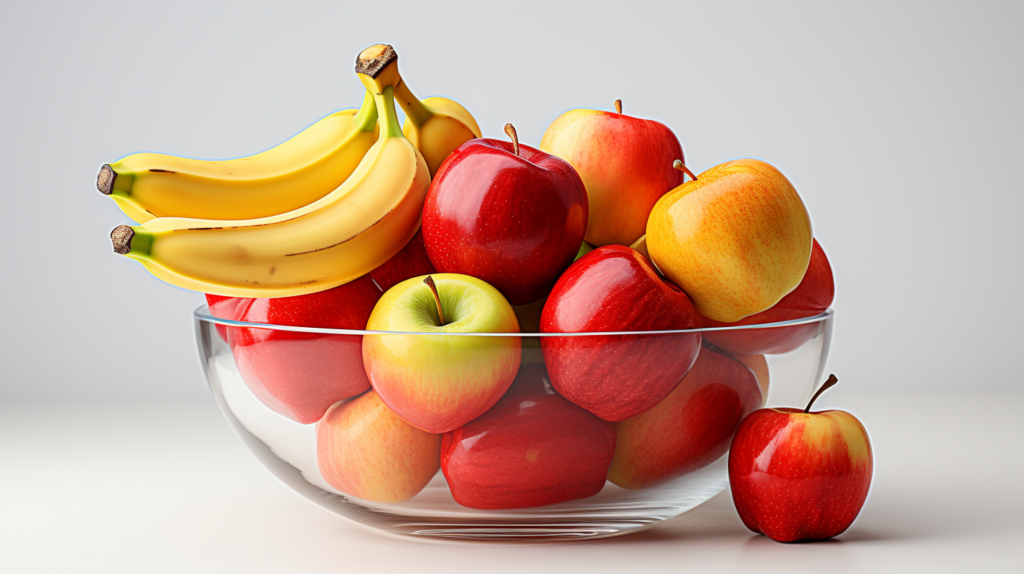
Prebiotics and Nutrient Absorption
One of the key benefits of regularly consuming prebiotic foods is their ability to enhance nutrient absorption in the gut. The gut microbiome plays a vital role in breaking down and absorbing nutrients from the foods we eat. When the gut microbiome is imbalanced, as in cases of dysbiosis, nutrient absorption can be impaired, leading to a range of health issues.
Prebiotics help to improve nutrient absorption by promoting the growth of beneficial bacteria in the gut. These bacteria are responsible for producing short-chain fatty acids (SCFAs) such as butyrate, which play an essential role in maintaining gut barrier integrity and promoting nutrient absorption.
Research has shown that consuming prebiotic foods can increase the production of SCFAs in the gut, leading to enhanced nutrient absorption and improved overall health. One study found that supplementing with a prebiotic called fructooligosaccharides (FOS) increased the absorption of various minerals, including calcium, magnesium, and iron, in healthy adults.
The Role of Prebiotics in Nutrient Absorption
| Nutrient | Effect of Prebiotics |
|---|---|
| Calcium | Increases absorption by promoting the growth of beneficial bacteria in the gut |
| Magnesium | Increases absorption by promoting the growth of beneficial bacteria in the gut |
| Iron | Increases absorption by enhancing gut barrier function and promoting the growth of beneficial bacteria in the gut |
In addition to enhancing nutrient absorption, prebiotic foods can also help to reduce inflammation in the gut. Chronic inflammation is a common issue among individuals with gut dysbiosis and can lead to nutrient malabsorption, among other health problems. By promoting a healthy gut microbiome, prebiotic foods can help to reduce inflammation and improve overall gut health.
Incorporating prebiotic-rich foods into your diet is an excellent way to support better nutrient absorption and promote optimal gut health. Foods such as onions, garlic, asparagus, and bananas are all great sources of prebiotics and can easily be included in a variety of meals and snacks.
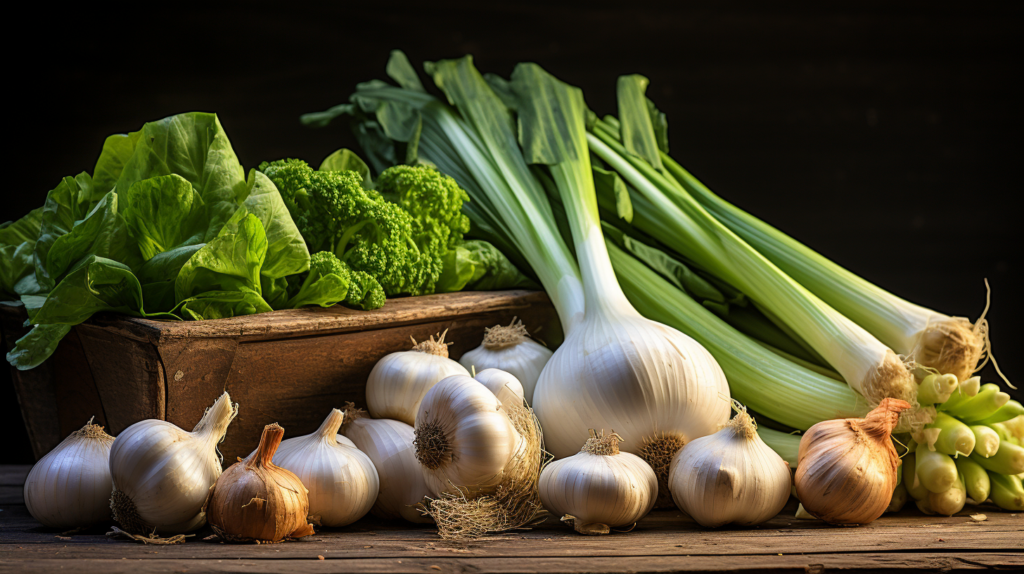
The Role of Prebiotics in Maintaining a Healthy Gut Microbiome
Prebiotic foods play a critical role in maintaining a healthy gut microbiome. The gut microbiome is the collection of microorganisms, including bacteria, fungi, and viruses, that reside in your digestive system. These microbes perform various essential functions, such as aiding digestion, synthesizing nutrients, and regulating the immune system.
A healthy gut microbiome is diverse and contains a balanced ratio of beneficial to harmful microbes. Imbalances in the microbiome, known as dysbiosis, have been linked to various digestive and systemic health issues.
Prebiotic foods promote a healthy gut microbiome by providing food for beneficial gut bacteria to thrive. These foods contain non-digestible carbohydrates that pass through the digestive tract intact and are fermented by gut bacteria in the large intestine. This fermentation process produces short-chain fatty acids, which are essential for gut health.
In addition to feeding beneficial bacteria, prebiotic foods also help to inhibit the growth of harmful microbes. By creating an environment that favors beneficial bacteria, prebiotic foods promote a healthy and diverse microbiome, which is crucial for optimal digestive and systemic health.
Examples of Prebiotic Foods
Some examples of prebiotic-rich foods include:
- Garlic
- Onions
- Leeks
- Asparagus
- Bananas
- Apples
- Chicory root
- Dandelion greens
Incorporating these foods into your diet can help to promote a healthy gut microbiome, leading to improved digestive and systemic health.
Best Prebiotic Foods to Incorporate into Your Diet
Now that you understand the importance of prebiotic foods for your gut health, it’s time to start incorporating them into your diet. Here are some of the best prebiotic-rich foods to add to your meals:
| Food | Prebiotic Fiber Content |
|---|---|
| Chicory Root | 64.6% |
| Dandelion Greens | 24.3% |
| Jerusalem Artichoke | 31.5% |
| Garlic | 17.5% |
| Onions | 8.6% |
| Leeks | 11.7% |
| Asparagus | 5% |
| Bananas | 0.5-1% |
| Apples | 0.5% |
| Oats | 1.5% |
Remember, it’s important to incorporate a variety of prebiotic-rich foods into your diet to promote a healthy gut. Try adding asparagus to your omelets, cooking with onions and garlic, snacking on apples and bananas, and incorporating oats into your breakfast routine. With a little creativity, you can easily make these gut-friendly foods a regular part of your diet.
If you’re unsure about how to create a gut health diet that works for you, consider consulting a registered dietitian or nutritionist. They can provide personalized recommendations based on your individual needs and preferences.
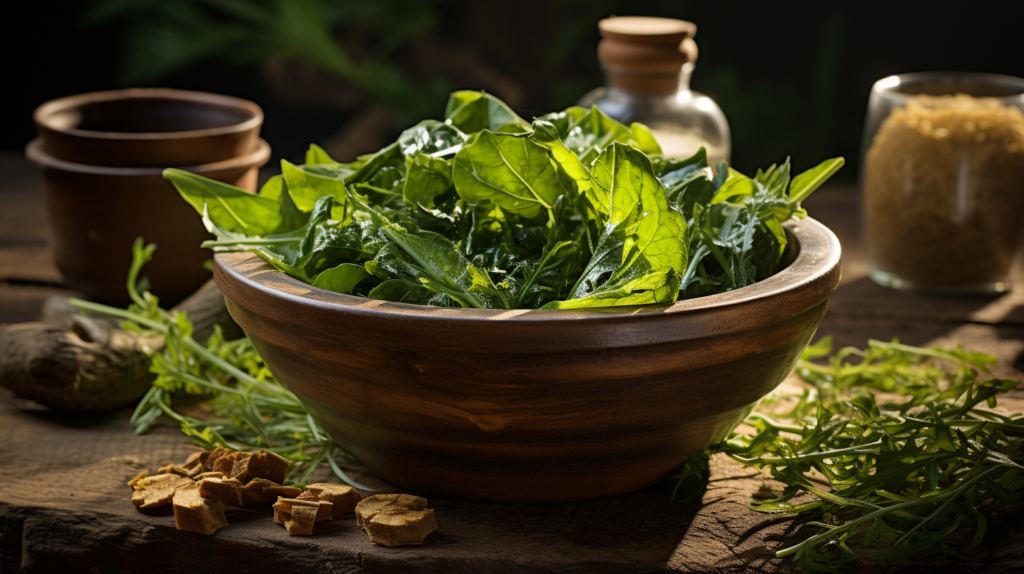
Incorporating Prebiotic Foods into Your Meals
If you’re looking to improve your gut health, incorporating prebiotic-rich foods into your diet is a great place to start. Not only are these foods beneficial for your gut microbiome, but they’re also delicious and easy to include in your daily meals and snacks.
Here are some tips and tricks for incorporating gut-friendly, prebiotic-rich foods into your diet:
- Add sliced banana or chopped nuts to your morning oatmeal
- Swap out white rice for brown rice, which is higher in prebiotics
- Snack on raw vegetables like carrots, bell peppers, and cucumbers with hummus or a prebiotic-rich dip
- Incorporate whole grains like quinoa and barley into your meals
- Include legumes such as lentils, chickpeas, and black beans in your soups, stews, and salads
- Enjoy fruits such as berries, kiwi, and apples as a tasty and healthy snack
By making these simple switches, you can easily add prebiotic-rich foods to your diet and promote a healthy gut environment.
Prebiotic-Rich Recipes to Try
Looking for some delicious recipe inspiration? Here are a few prebiotic-rich dishes to try:
| Recipe | Prebiotic Ingredients |
|---|---|
| Veggie Quinoa Bowl | quinoa, broccoli, bell peppers, chickpeas |
| Black Bean Salad | black beans, bell peppers, avocado, tomatoes |
| Apple Walnut Salad | mixed greens, apples, walnuts, balsamic vinaigrette |
Pro tip: When meal prepping for the week, batch cook some of your favorite prebiotic-rich ingredients like quinoa, lentils, and roasted vegetables to easily incorporate into your meals throughout the week.
By incorporating prebiotic-rich foods into your diet and trying out new recipes, you can enjoy delicious meals while promoting a healthy gut microbiome.
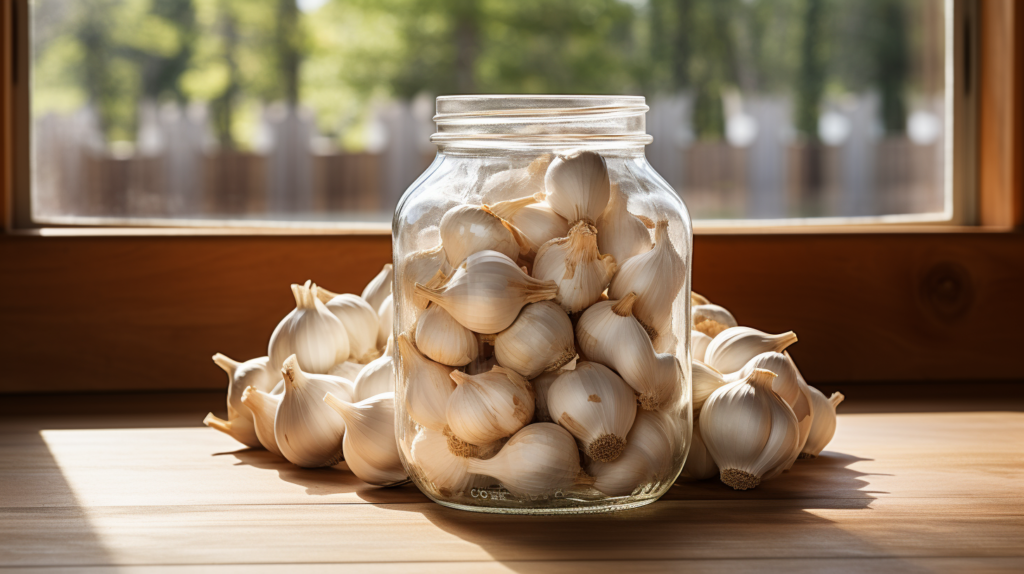
Additional Factors for a Healthy Gut
While consuming prebiotic foods is crucial for maintaining a healthy gut, there are other factors to consider as well. Here are some additional steps you can take:
- Stay hydrated by drinking plenty of water throughout the day.
- Incorporate probiotic-rich foods like yogurt and kefir into your diet to support a diverse gut microbiome.
- Reduce your intake of processed foods and added sugars, which can disrupt gut health.
- Engage in regular physical activity to promote gut motility and overall digestive health.
- Manage stress through techniques like meditation, deep breathing, or yoga.
By taking these steps in addition to consuming prebiotic-rich foods, you can support your digestive system health and promote a healthy gut microbiome for optimal overall well-being.
Maintaining Long-Term Gut Health
A healthy gut is essential for overall well-being, and regularly consuming prebiotic-rich foods is one way to support digestive system health. However, sustaining a healthy gut requires ongoing effort and attention to other lifestyle factors as well.
Incorporating Regular Physical Activity
Regular physical activity is important for maintaining a healthy gut. Exercise stimulates the muscles in the digestive tract, helping to move food through your system more efficiently. Aim for at least 30 minutes of moderate-intensity exercise most days of the week to support gut health.
Managing Stress
Chronic stress can have a negative impact on gut health. When you’re under stress, your body releases hormones that can disrupt digestive processes. To manage stress, try techniques such as meditation, deep breathing exercises, or yoga. Make time for activities that you enjoy and prioritize self-care to help reduce stress levels.
Staying Hydrated
Drinking enough water is essential for healthy digestion. Water helps to soften stool, making it easier to pass through the digestive tract. It also helps to flush out waste products and toxins from the body. Aim for at least eight glasses of water per day to support a healthy gut.
Avoiding Unhealthy Habits
Unhealthy habits such as smoking, excessive alcohol consumption, and consuming foods high in sugar and saturated fat can all negatively impact gut health. Avoiding these habits and making healthier choices can help to maintain a healthy gut.
Incorporating Prebiotic Foods in Your Gut Health Diet
Finally, as discussed earlier in this article, incorporating prebiotic-rich foods into your diet can provide ongoing support for gut health. Make sure to include a variety of prebiotic foods such as whole grains, fruits, vegetables, and legumes in your gut health diet.
Seeking Professional Guidance for Gut Health
While incorporating prebiotic foods into your diet is a great way to maintain digestive system health and a healthy gut, it’s important to recognize when it may be necessary to seek professional guidance.
If you experience persistent digestive issues, such as diarrhea, constipation, or abdominal pain, it may be a sign of an underlying condition that requires medical attention. Additionally, if you are considering making significant changes to your diet or lifestyle for gut health purposes, consulting with a healthcare professional is advisable.
Your doctor or a registered dietitian can help identify any underlying gut health issues and provide personalized recommendations for improving your digestive system health. They may also suggest additional tests or treatments that can help support your gut health, such as probiotic supplements or medication for a specific condition.
Remember, taking care of your digestive system health and maintaining a healthy gut is essential for your overall well-being. Seeking professional guidance when necessary can help ensure that you are on the right track towards optimal digestive system health.
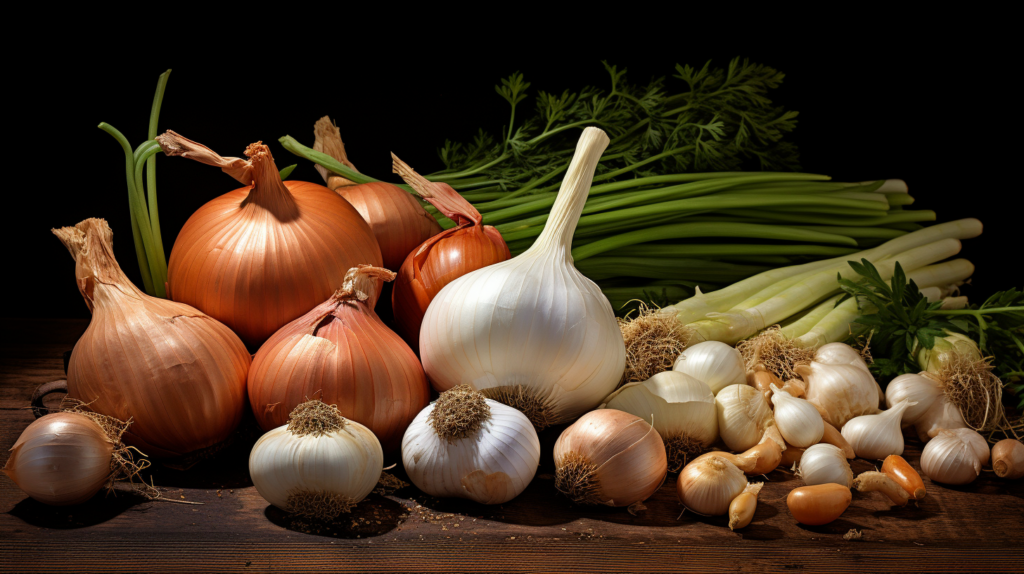
Conclusion
Congratulations on taking the first step towards improving your gut health! You now know the vital role that prebiotic foods play in promoting a healthy gut and improving digestion. By incorporating prebiotic-rich foods into your diet, you can enhance nutrient absorption, promote the growth of beneficial bacteria, and support a balanced gut microbiome.
Remember, sustaining a healthy gut is a long-term process that requires consistent effort. Focus on incorporating a variety of prebiotic foods into your meals and snacks, while also considering other lifestyle factors such as regular exercise and stress management.
Seeking Professional Guidance
If you are experiencing gut health concerns such as persistent bloating, gas, or constipation, it may be necessary to seek professional guidance. A healthcare professional can diagnose and treat any underlying issues and provide personalized recommendations for your gut health.
By prioritizing your gut health and incorporating prebiotic foods into your daily routine, you can improve your overall well-being and enjoy a healthier, happier life. Cheers to a healthy gut!
FAQ
What happens inside your gut when you consume prebiotic foods regularly?
Consuming prebiotic foods regularly can promote a healthier gut and improve digestion. These foods nourish beneficial bacteria in the gut, leading to enhanced nutrient absorption, better digestion, and a more balanced gut microbiome.
What is gut health and the gut microbiome?
Gut health refers to the functioning and balance of the digestive system, while the gut microbiome refers to the community of microorganisms that reside in the gut. Both play crucial roles in overall well-being and can be influenced by factors such as diet, lifestyle, and medications.
What are prebiotic foods?
Prebiotic foods are a type of dietary fiber that nourishes beneficial bacteria in the gut, promoting a healthy gut microbiome. They are different from probiotics, which are live bacteria found in certain foods or in supplement form.
What are the importance of prebiotic foods for gut health?
Prebiotic foods offer several benefits for gut health. They promote the growth of beneficial bacteria, inhibit the growth of harmful microbes, enhance nutrient absorption, and contribute to a balanced and diverse gut microbiome. Including prebiotic foods in your diet is essential for maintaining a healthy gut.
How do prebiotic foods support digestion?
Prebiotic foods support digestion by improving gut motility, increasing stool frequency, and reducing symptoms of digestive issues such as bloating, gas, and constipation. They help maintain a healthy gut environment and support the overall function of the digestive system.
How do prebiotic foods enhance nutrient absorption?
Prebiotic foods enhance nutrient absorption by improving the health and diversity of the gut microbiota. By nourishing beneficial bacteria, prebiotics increase the availability of nutrients and ensure optimal nutrient absorption for better overall health.
What role do prebiotics play in maintaining a healthy gut microbiome?
Prebiotic foods play a crucial role in maintaining a healthy gut microbiome by promoting the growth of beneficial bacteria and inhibiting the growth of harmful microbes. They help create a balanced and diverse gut environment, which is essential for optimal gut health.
Which are the best prebiotic foods to incorporate into your diet?
Some of the best prebiotic foods to incorporate into your diet include chicory root, garlic, onions, leeks, bananas, asparagus, oats, apples, and flaxseeds. These foods are rich in prebiotic fibers and can easily be included in various meals and snacks.
How can you incorporate prebiotic foods into your meals?
You can incorporate prebiotic foods into your meals by adding them to salads, soups, stir-fries, or smoothies. You can also use them as toppings or fillings in sandwiches, wraps, or bowls. There are numerous recipes available that specifically include prebiotic-rich foods as ingredients.
What are other factors for a healthy gut?
Apart from consuming prebiotic foods, other factors for a healthy gut include regular physical activity, stress management, adequate hydration, and avoiding excessive consumption of processed foods and sugary drinks. These lifestyle choices can further support gut health and overall well-being.
How can you maintain long-term gut health?
To maintain long-term gut health, it is important to continue incorporating prebiotic foods into your daily routine. Additionally, maintaining a balanced and varied diet, managing stress, staying physically active, and regularly monitoring your digestive health can all contribute to sustained gut health.
When should you seek professional guidance for gut health?
If you experience persistent or severe digestive symptoms, such as chronic bloating, diarrhea, or abdominal pain, it is advisable to seek professional guidance. Healthcare professionals, such as gastroenterologists or registered dietitians, can diagnose and treat gut-related issues and provide personalized advice based on your specific needs.














